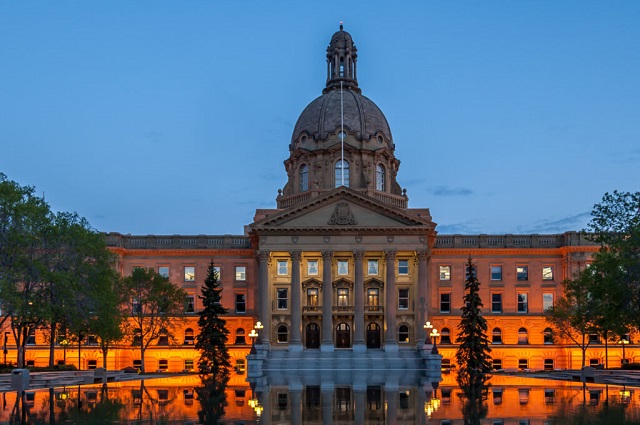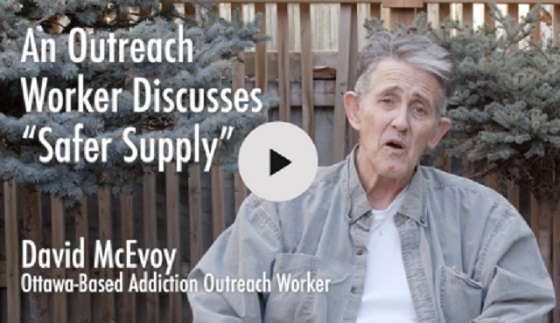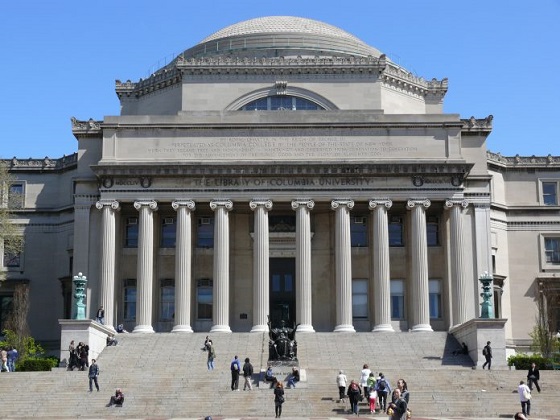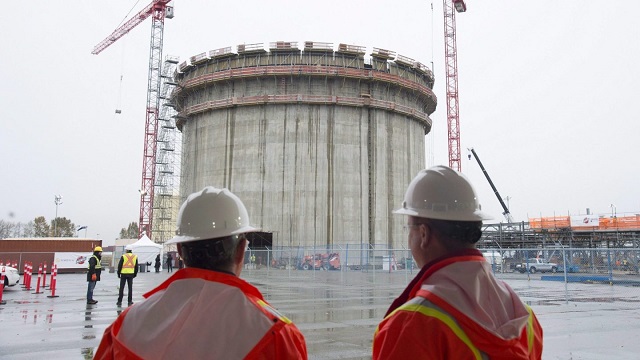Alberta
Canada’s health-care wait times hit 27.7 weeks in 2023—longest ever recorded

From the Fraser Institute
By Mackenzie Moir and Bacchus Barua
Canadian patients waited longer than ever this year for medical treatment, finds a new study released by the Fraser Institute, an independent, non-partisan Canadian public policy think-tank.
The study, an annual survey of physicians across Canada, reports a median wait time of 27.7 weeks—the longest ever recorded, longer than the wait of 27.4 weeks reported in 2022—and 198 per cent higher than the 9.3 weeks Canadians waited in 1993, when the Fraser Institute began tracking wait times.

“COVID-19 and related hospital closures have exacerbated, but are not the cause, of Canada’s historic wait times challenges,” said Bacchus Barua, director of the Fraser Institute’s Centre for Health Policy Studies and co-author of Waiting Your Turn: Wait Times for Health Care in Canada, 2023.
“Previous results revealed that patients waited an estimated 20.9 weeks for medically necessary elective care in 2019—long before the pandemic started.”
The study examines the total wait time faced by patients across 12 medical specialties from referral by a general practitioner (i.e. family doctor) to consultation with a specialist, to when the patient ultimately receives treatment.
More than 1,200 responses were received across the 12 specialties and 10 provinces. Among the provinces, Ontario recorded the shortest wait time at 21.6 weeks—still up from 20.3 weeks in 2022. Nova Scotia recorded the longest wait time in Canada at 56.7 weeks.
Among the various specialties, national wait times were longest between a referral by a GP and plastic (52.4 weeks), orthopedic (44.3) neurosurgery (43.5). Wait times were shortest for radiation (4.4 weeks) and medical oncology treatments (4.8 weeks). Patients also experience significant waiting times for various diagnostic technologies. This year, Canadians could expect to wait 6.6 weeks for a computed tomography (CT) scan, 12.9 weeks for a magnetic resonance imaging (MRI) scan, and 5.3 weeks for an ultrasound.
Crucially, physicians report that their patients are waiting over four and a half weeks longer for treatment (after seeing a specialist) than what they consider to be clinically reasonable.
“Excessively long wait times remain a defining characteristic of Canada’s health-care system” said Mackenzie Moir, Fraser Institute policy analyst and co-author of the report. “And they aren’t simply minor inconveniences, they can result in increased suffering for patients, lost productivity at work, a decreased quality of life, and in the worst cases, disability or death.”
Median wait times by province (in weeks)
PROVINCE 2022 2023
British Columbia 25.8 27.7
Alberta 33.3 33.5
Saskatchewan 30.1 31.0
Manitoba 41.3 29.1
Ontario 20.3 21.6
Quebec 29.4 27.6
New Brunswick 43.3 52.6
Nova Scotia 58.2 56.7
P.E.I. 64.7 55.2
Newfoundland and Labrador 32.1 33.3

Each year, the Fraser Institute surveys physicians across twelve specialties and the ten provinces in order to document the queues for visits to specialists and for diagnostic and surgical procedures in Canada. Waiting Your Turn: Wait Times for Health Care in Canada, 2023 Report reports the results of this year’s survey.
In 2023, physicians report a median wait time of 27.7 weeks between a referral from a general practitioner and receipt of treatment. This represents the longest delay in the survey’s history and is 198% longer than the 9.3 weeks Canadian patients could expect to wait in 1993.
Overall, Ontario reports the shortest wait across Canada (21.6 weeks) while Nova Scotia had the longest (56.7 weeks).
The 27.7 week total wait time that patients face can be examined in two consecutive segments:
- referral by a general practitioner to consultation with a specialist: 14.6 weeks;
- consultation with a specialist to receipt of treatment: 13.1 weeks.
After seeing a specialist, Canadian patients were waiting 4.6 weeks longer than what physicians consider clinically reasonable (8.5 weeks).
Across the ten provinces, the study also estimates that there were 1,209,194 procedures for which patients—3% of the Canadian population—were waiting in 2023.
Patients also face considerable delays for diagnostic technology. This year, Canadians could expect to wait 6.6 weeks for a CT scan, 12.9 for an MRI scan, and 5.3 weeks for an ultrasound.
Survey results suggest that, despite provincial strategies to reduce wait times, Canadian patients continue to wait too long for medically necessary treatment.
Data were collected from the week of January 16 to July 1, 2023, longer than the period of collection in years before the COVID19 pandemic. A total of 1,269 responses were received across the 12 specialties surveyed. However, this year’s response rate was 10.3% (lower than in some previous years). As a result, the findings in this report should be interpreted with caution.
Research has repeatedly indicated that wait times for medically necessary treatment are not benign inconveniences. Wait times can, and do, have serious consequences such as increased pain, suffering, and mental anguish. In certain instances, they can also result in poorer medical outcomes—
transforming potentially reversible illnesses or injuries into chronic, irreversible conditions, or even permanent disabilities. In many instances, patients may also have to forgo their wages while they wait for treatment, resulting in an economic cost to the individuals themselves and the economy in general.
The results of this year’s survey indicate that despite provincial strategies to reduce wait times and high levels of health expenditure, it is clear that patients in Canada continue to wait too long to receive medically necessary treatment.
Waiting Your Turn: Wait Times for Health Care in Canada, 2023 Report
By Mackenzie Moir and Bacchus Barua, with Hani Wannamaker
www.fraserinstitute.org
Authors:
Alberta
Official statement from Premier Danielle Smith and Energy Minister Brian Jean on the start-up of the Trans Mountain Pipeline

Alberta
Protecting the right to vote for Canadian citizens: Minister McIver

Minister of Municipal Affairs Ric McIver issued the following statement in response to Calgary City Council’s vote to extend the right to vote to permanent residents:
“Yesterday, Calgary city council passed a motion advocating for permanent residents to be extended the right to vote in civic elections. Alberta’s government has been clear since the beginning: only Canadian citizens are able to vote in civic elections. That will not be changing.
“The Canadian Charter of Rights and Freedoms affirms the right of every Canadian citizen to vote and to run as a candidate. This right extends to voters in municipal, provincial and federal elections.
“Protecting our democracy is of the utmost importance. Our provincial election legislation, like the Local Authorities Elections Act, has also been clear since its inception that voting is a right of Canadian citizens.
“Alberta’s government is also ensuring that voting is accessible for more Albertans. The Municipal Affairs Statutes Amendment Act proposes to enable special ballot access for any voter who requests it, without having to provide any specific reason such as physical disability, absence from the municipality or working for the municipal election. The ministries of Seniors, Community and Social Services and Service Alberta and Red Tape Reduction are also making it easier for individuals to obtain the identification Albertans need for a variety of services, including the ability to cast a ballot.
“Our government will continue to protect the integrity of our elections and make sure voting is accessible for all Albertans who are Canadian citizens.”
-

 Business2 days ago
Business2 days agoParliamentary Budget Officer forecasts bigger deficits for years to come
-

 Addictions2 days ago
Addictions2 days agoMust Watch: Addiction worker estimates 90% of “safer supply” drugs resold on black market
-

 conflict2 days ago
conflict2 days agoColumbia on Lockdown After pro-Palestinian Protesters Take Over Building, Hold Janitors Hostage
-

 Canadian Energy Centre2 days ago
Canadian Energy Centre2 days agoNorth America LNG project cost competitiveness
-

 Business1 day ago
Business1 day agoWEF panelist suggests COVID response accustomed people to the idea of CBDCs
-

 Great Reset21 hours ago
Great Reset21 hours agoMiddle school girls who refused to compete against male banned from next track meet
-

 illegal immigration1 day ago
illegal immigration1 day agoFlight Docs Reveal Which Cities Are Receiving Migrants Under Biden’s Parole Program
-

 Fraser Institute1 day ago
Fraser Institute1 day agoCanada can solve its productivity ‘emergency’—we just need politicians on board










